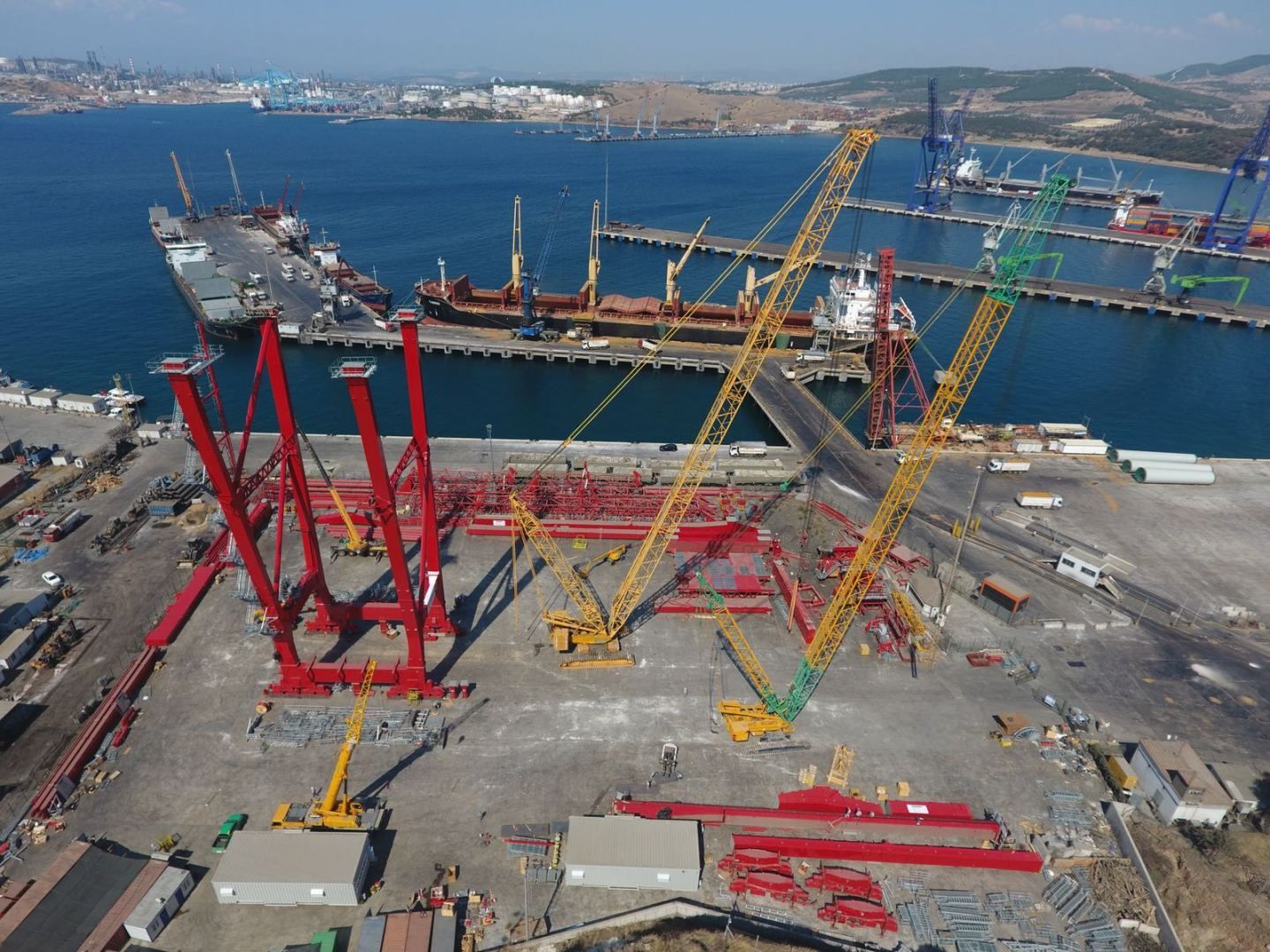Turkish ports strive to maintain cargo volumes amid tensions in Black Sea

By Trend
The military events in Ukraine had a direct impact on world trade routes. Many countries, including the UK, the US, Canada and the EU states, have introduced a ban on the entry of ships flying the Russian flag into their ports.
Turkey did not join the anti-Russian sanctions, continuing to receive cargo from all directions, which had a positive effect on the cargo turnover of its ports.
According to the Turkish Ministry of Transport and Infrastructure, ports of Turkey increased their transshipment of goods by 6,000 tons from January through April 2022 compared to the same period last year.
Turkish ports handled 124.9 million tons of cargo from January through April 2021, including 24.4 million tons of transit cargo.
Turkish ports handled 130.8 million tons of cargo from January through April 2022, including 27.7 million tons of transit cargo.
Despite the growth in the total volume of cargo transportation, their transshipment by Turkish ports on the Black Sea, which washes the shores of both Russia and Ukraine, has decreased.
According to the ministry, the largest Turkish port on the Black Sea, port of Samsun, handled 3.6 million tons of cargo from January through April 2021.
The port of Samsun handled 3 million tons of cargo from January through April 2022.
Another major Turkish port, Zonguldak, handled 3.9 million tons of cargo from January through April 2021. The port of Zonguldak handled 3.7 million tons of cargo in the same period of 2022.
A total of 3.1 million tons of cargo were transshipped through the port of Eregli from January through April 2021. This port handled 2.6 million tons of cargo from January through April 2022.
A similar picture can be seen in the transshipment rates of smaller Turkish ports.
For example, the port of Bartin handled 664,846 tons of cargo from January through April 2021. Cargo transshipment by this port amounted to 564,659 tons for the same period in 2022.
The port of Trabzon handled 555,754 tons of cargo from January through April 2021. This figure amounted to 381,116 tons from January through April 2022.
Another port on the Black Sea, port of Hopa handled 92,427 tons of cargo from January through April 2021. Transshipment decreased to 41,442 tons from January through April 2022.
The situation with deliveries from the ports of Russia and Ukraine directly affected the reduction in cargo turnover in the Black Sea ports of Turkey.
According to the Turkish Ministry of Transport and Infrastructure, 19.6 million tons of cargo were delivered from Russia to Turkey in the first quarter of 2021. Transshipment from Russia amounted to 17.2 million tons of cargo in the first quarter of 2022.
A total of 4.8 million tons of cargo arrived from Ukraine to Turkey in 2021. The transshipment of goods from Ukraine amounted to 3.5 million tons in 2022.
At the same time, there is an increase in cargo traffic from other countries of the Black Sea, two of which - Bulgaria and Romania - have banned ships from Russia from entering their ports.
Therefore, 1.08 million tons of cargo arrived in Turkey from Bulgaria from January through April last year. The transshipment of goods from Bulgaria through Turkey amounted to 1.2 million tons from January through April 2022.
A total of 2.2 million tons of cargo arrived in Turkey from Romania in four months of last year and 2.4 million tons during the same period of 2022.
Some 696,087 tons of cargo arrived from Georgia to Turkey from January through April 2021.
Turkish ports handled 799,572 tons of cargo from Georgia from January through April 2022.
Thereby, even the situation in Ukraine has had a negative impact on the transshipment of goods by ports of Turkey on the Black Sea.
Turkish government’s flexible policy has allowed it to increase the volume of cargo transportation, mainly due to countries that have stopped trading by the sea with Russia.
It can be assumed that Turkey will maintain the current measured growth rate of cargo transportation, given the ongoing tension in the region and the need of Western countries for a trade intermediary.
--
Follow us on Twitter @AzerNewsAz
